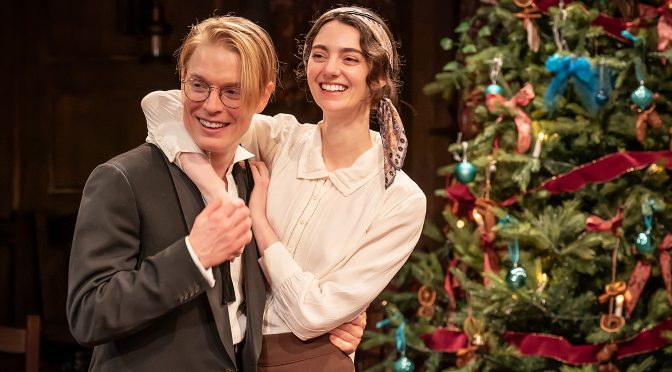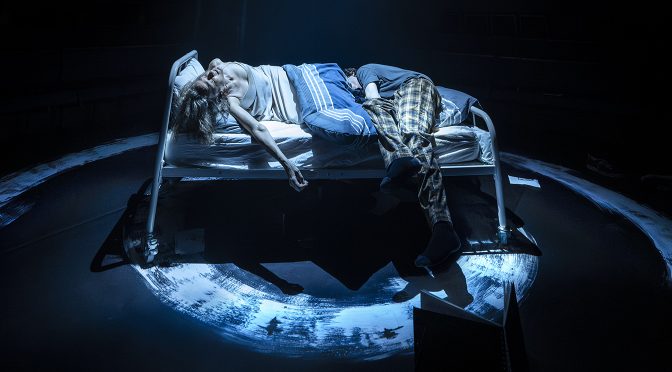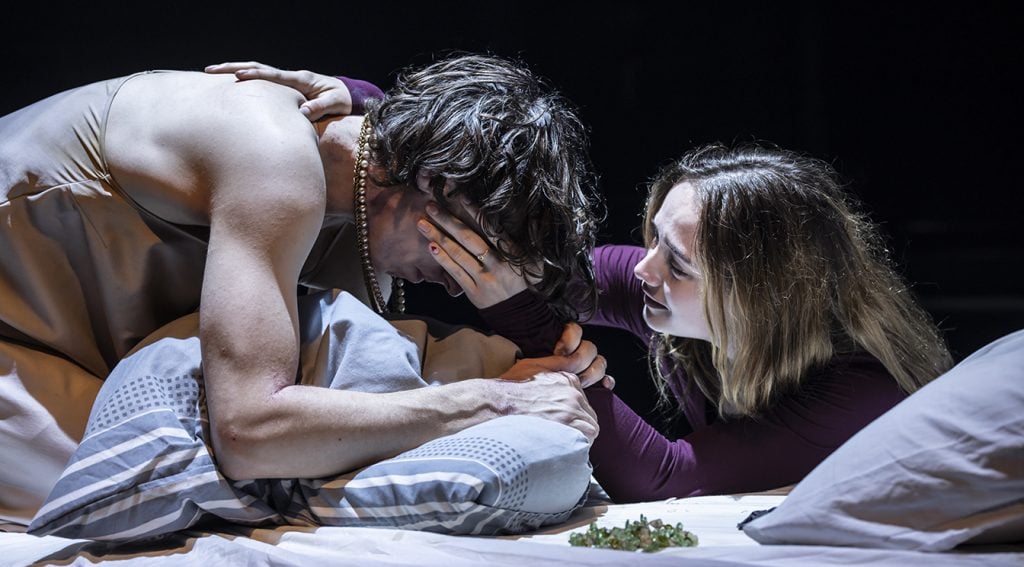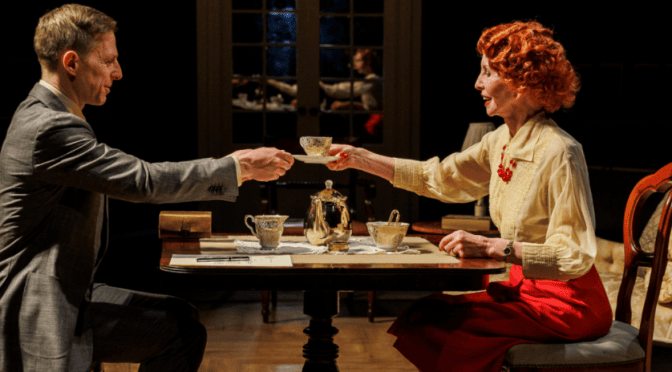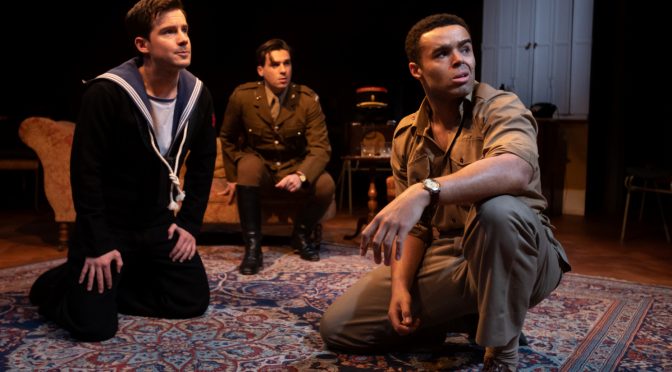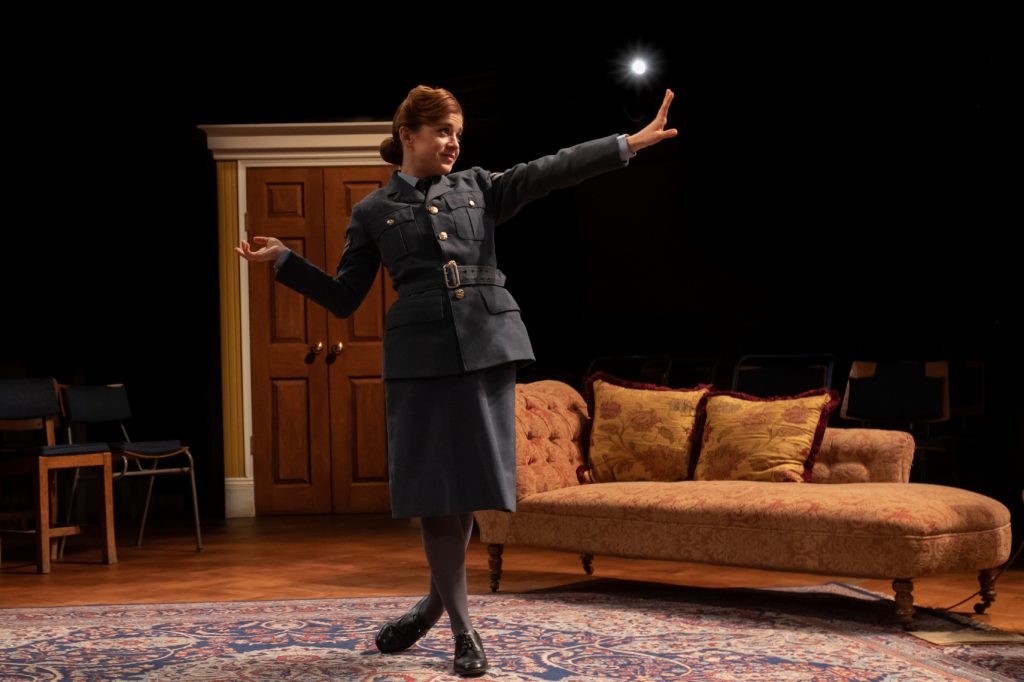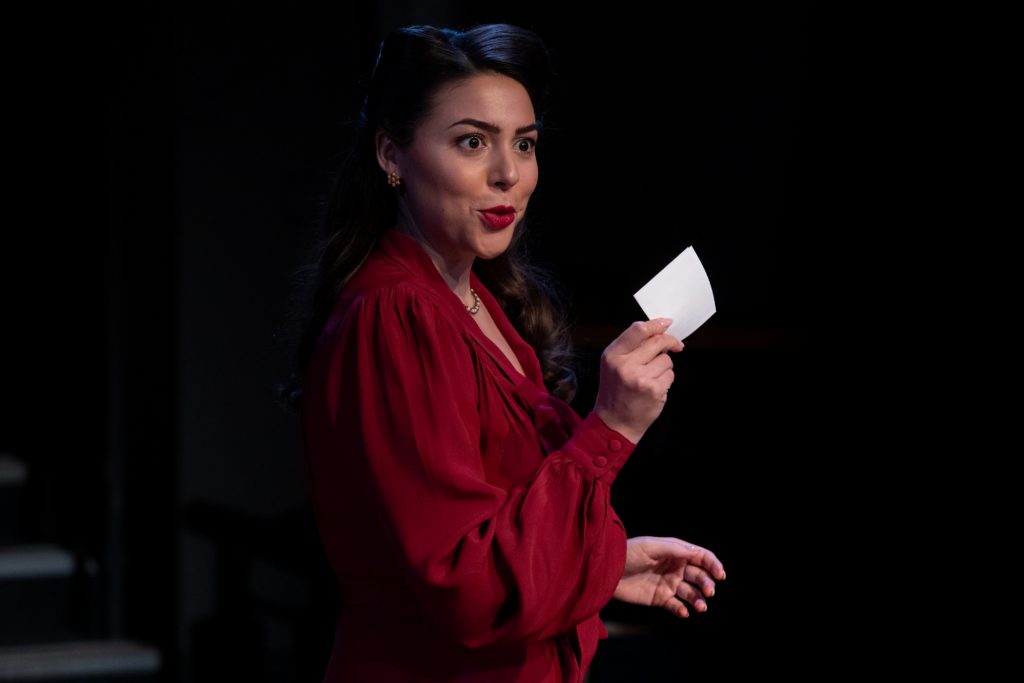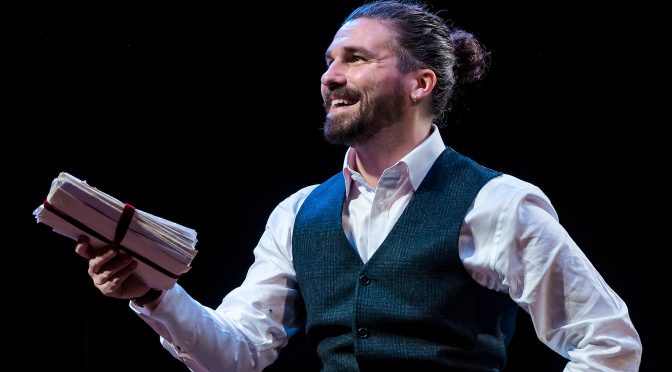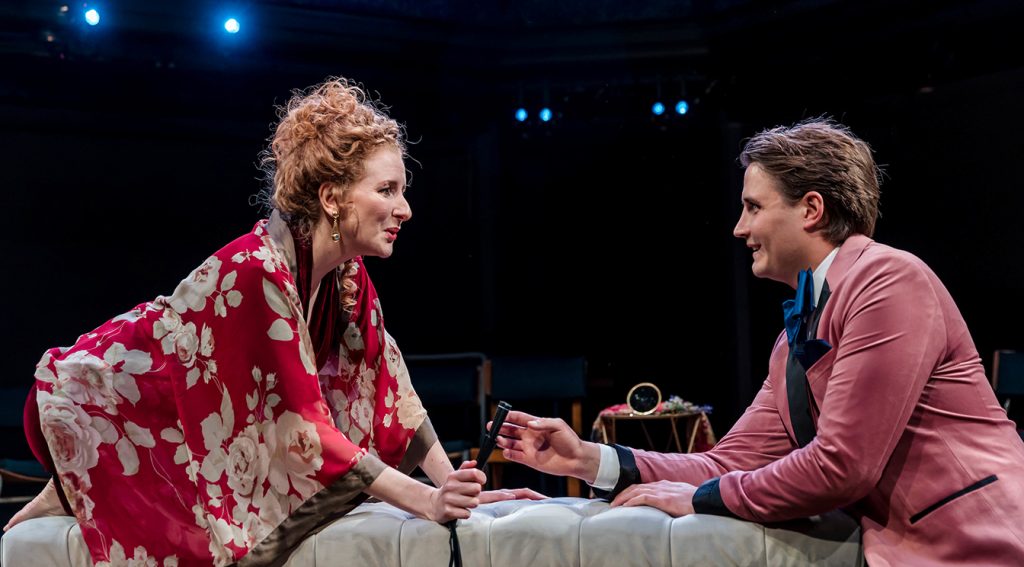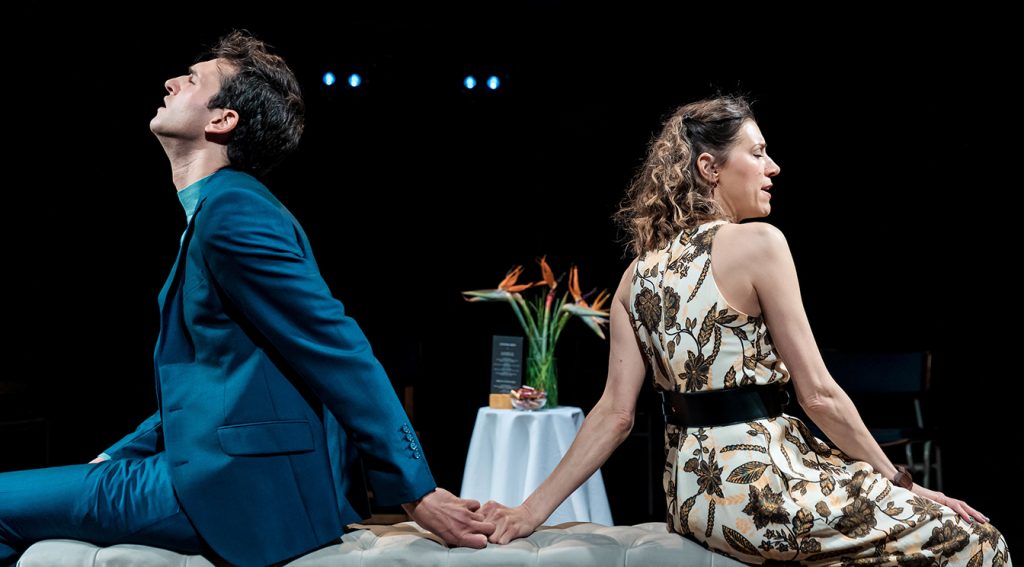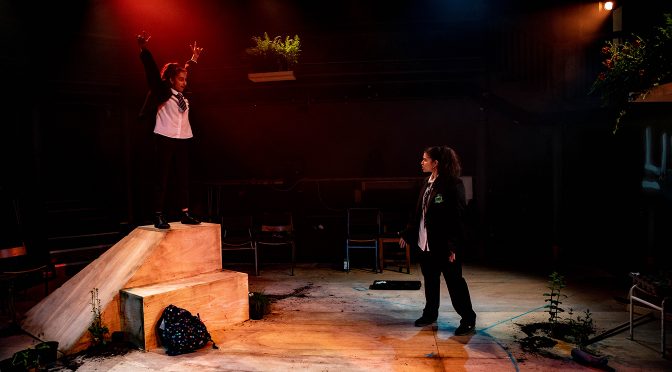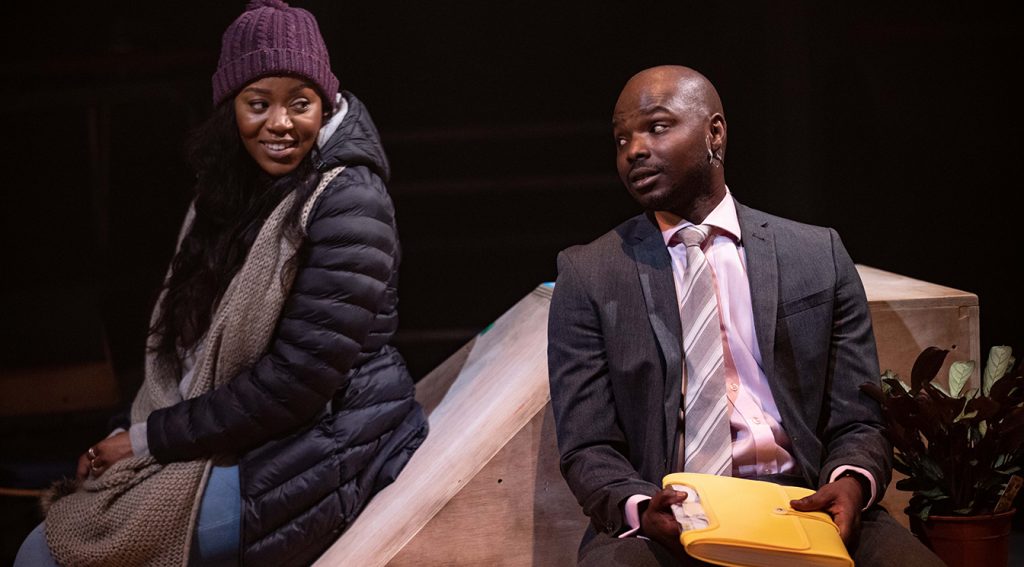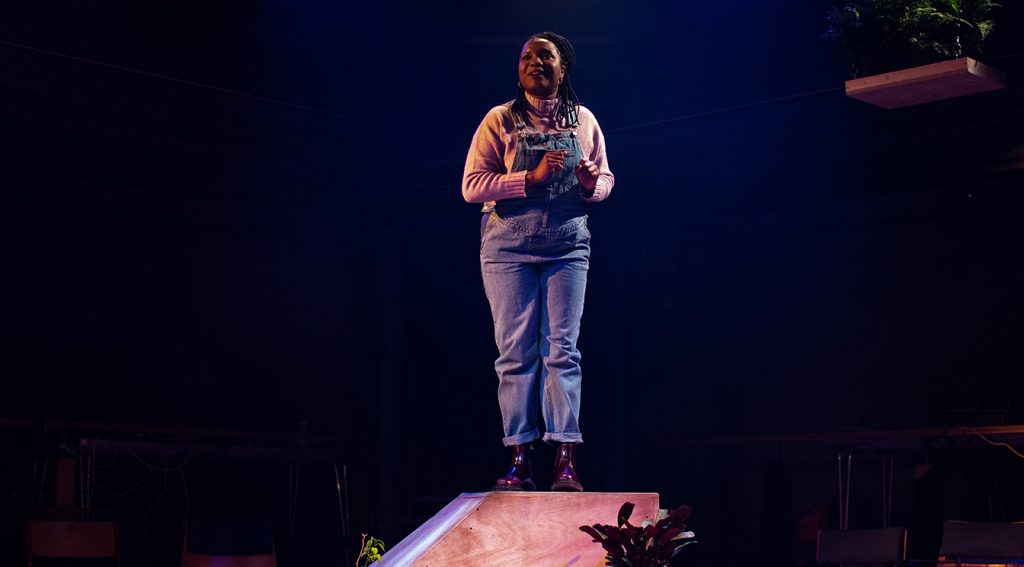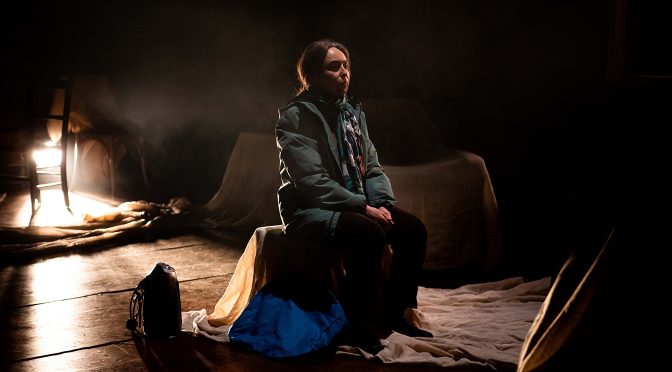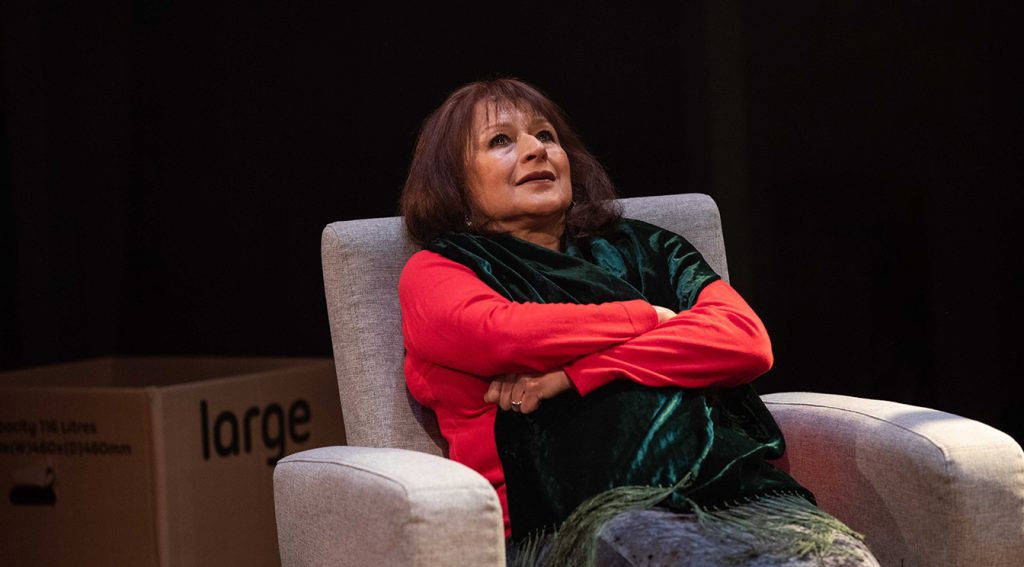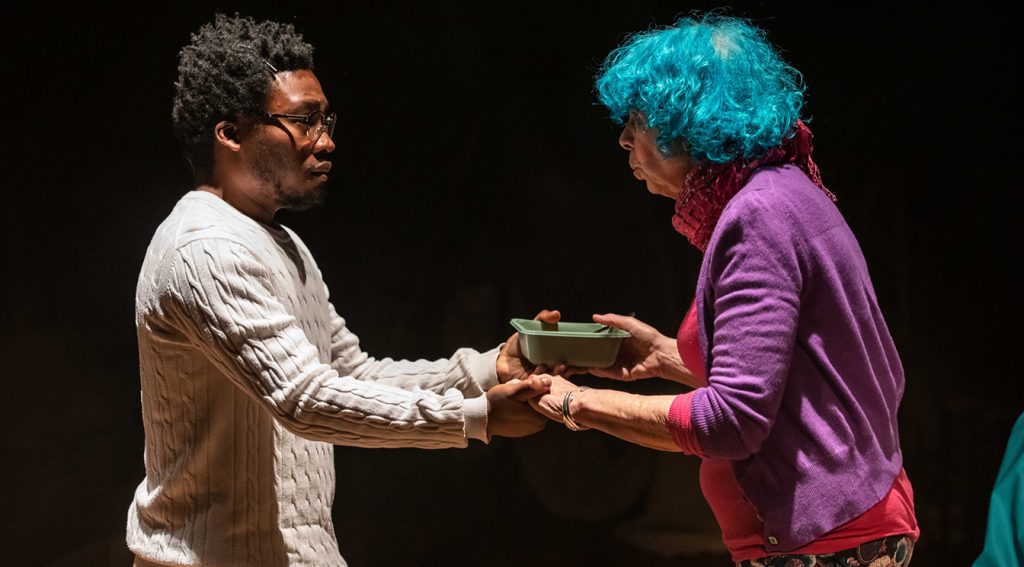Moving Oliver Goldsmith’s 1773 comedy to the 1930s proves a neat idea in director Tom Littler’s new production. Add a cracking cast and some seasonal touches and the show, which would be perfect any time of year, makes a very happy Christmas theatre trip.
This comedy of manners and mistaken identity is well known, but Littler makes it blissfully light. The wit is verbose, surely tongue-tying for performers, but the delivery here is always clear. Dashes of Wodehouse help – the division of town and country and a clash of classes become spiffing fun. And Littler is very much at home working in the round, making sure the action zips along among Anett Black and Neil Irish’s stylish design.
This is an ensemble that looks as if it’s having a great time and every role comes into its own. First up are Mr and Mrs Hardcastle, the country gentry, played by David Horovitch and Greta Scacchi. Horovitch gets a laugh out of nearly every line as the “grumbletonian” patriarch. Scacchi keeps up, despite a less forgiving role – anyone else feel sorry for this doting mum who doesn’t get her trip to London? As her prodigal offspring, Guy Hughes is the convivial heart of the play. He’s great with crowds and the Orange Tree’s community performers who have a lovely pub scene – well done them.
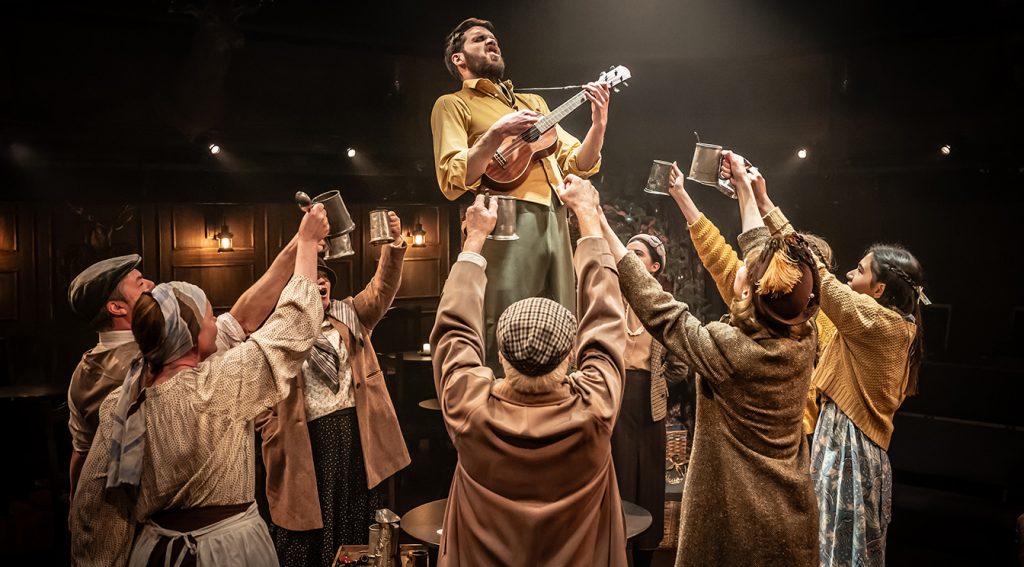
Celebrations continue with the play’s pairs of lovers. Sabrina Bartlett and Robert Mountford are at home as super-toffs plotting to elope, their roles serving as fitting mirrors to our stars, Tanya Reynolds and Freddie Fox. As the leads, the comedy from this pair is perfection. Reynolds is a great flapper. And so is Fox – the perfect “silly puppy” – especially when his “list of blunders” is slowly revealed.
Among the giggles there is sincerity, too. Reynolds shows us the dutiful daughter Goldsmith wrote, as well as the modern woman we want. When she claps her hands at a scheme, you want to join in. But when she starts to fall in love, it’s sweet. And who doesn’t like a rom-com at Christmas?
Until 13 January 2024
Photos by Marc Brenner

